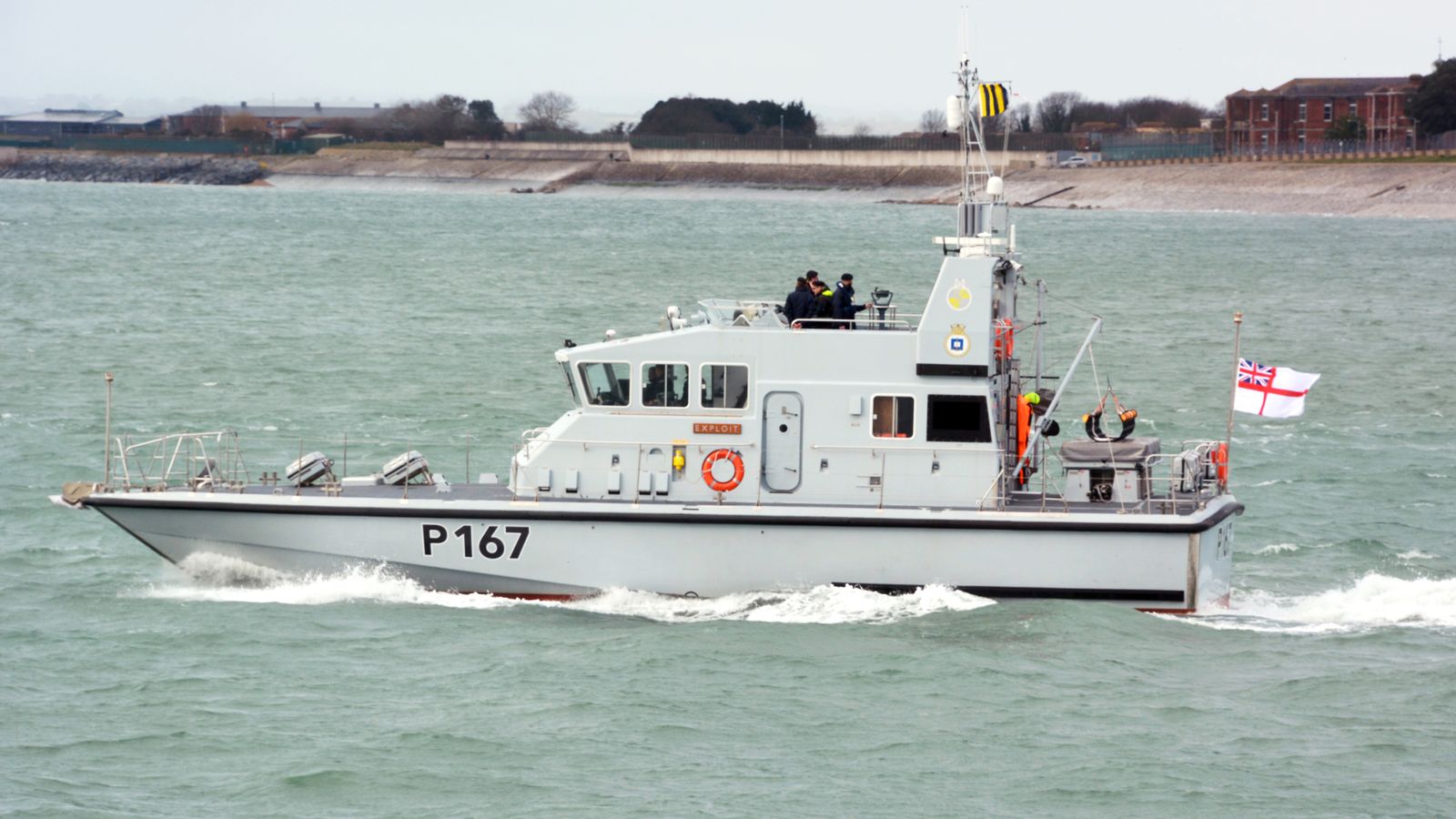Four of the Royal Navy’s smallest ships are preparing to head to Norway’s Arctic coast and take part in a NATO exercise after a problem was found on the fleet’s largest ship, HMS Queen Elizabeth.
They will be taking part in Exercise Steadfast Defender – the largest NATO exercise since the Cold War – in March.
HMS Prince of Wales is set to stand in for HMS Queen Elizabeth which has been forced to pull out of the mission because of a propeller “issue”, the Ministry of Defence said.
The departure of the fleet flagship from Portsmouth Naval Base at the weekend was cancelled at the last minute after final inspections spotted a problem with the starboard propeller coupling on the £3.5bn warship.
The four P2000 “plastic patrol craft” – HMS Biter, Blazer, Exploit and Trumpeter – set sail from Portsmouth on Monday as they make final preparations before heading to Norway.
The four vessels, which normally patrol coastlines and have a crew of only five each, are tiny at just over 20m long and displacing 54 tonnes compared with the aircraft carriers which are 283m long and displace 65,000 tonnes.
During the deployment the Archer-class craft will have to cope with temperatures averaging at -6C, dropping to around -30C in the High North when they sail above the 70th parallel.
The four patrol craft will leave Portsmouth later this month for the four-month deployment, travelling via the Netherlands, Germany and Denmark, before reaching their destination.
‘The sort of adventure you join the Royal Navy for’
Commander Richard Skelton, the Coastal Forces Squadron’s commanding officer, said: “It’s no small feat to take a 20-metre long plastic patrol boat, with an open bridge 1,500 miles north into the Arctic Circle and not only survive there but operate.
“The ship’s companies have worked hard to prepare and will be challenged by not only the environment but also the tasking. Ultimately it’s the sort of adventure you join the Royal Navy for.”
Petty Officer Timothy Scott, HMS Biter’s marine engineer officer, added: “Deploying to over 70 degrees north where the average temperature will be below zero presents an exciting new challenge for the squadron.
“Building on last year’s experience we will rise to a new challenge in the harsh Arctic environment of Norway and continue the journey of returning to our roots of small boat coastal warfare.”
Read more from Sky News:
Man bailed after grandmother killed by two dogs
Snow on way with yellow warning for large parts of UK
Be the first to get Breaking News
Install the Sky News app for free
A Royal Navy spokesman said: “In the past few years, the Coastal Forces Squadron has evolved from a unit of 14 boats which was mostly used to give university students a sample of life in the Royal Navy to a force returning to its First and Second World War roots, specialising in small, fast boat operations, supporting front-line RN and NATO training and missions around the UK and northwest Europe.”








